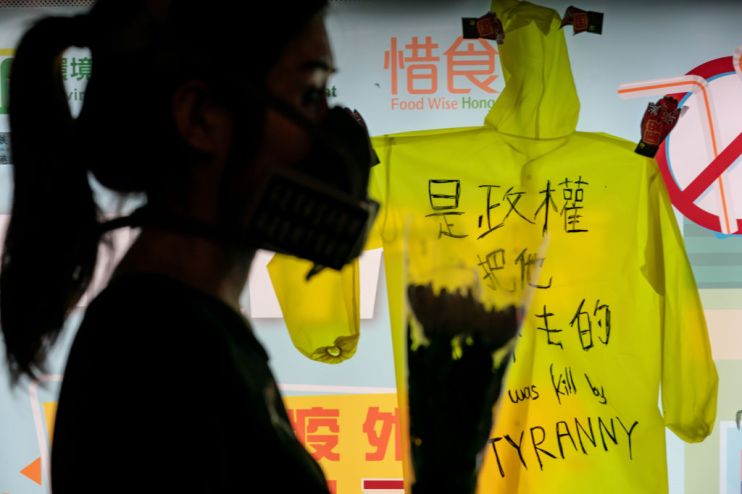We must not abandon the people of Hong Kong behind a new Great Wall

Hong Kong is a city of refugees.
When the People’s Republic of China was declared in 1949, refugees from the mainland flooded to the island territory to benefit from the city’s freedoms. And even before this, Hong Kong was seen as a safe haven for national figures such as Sun Yat-sen in the early twentieth century, wanted by authorities on the mainland.
Then were laid the foundation of cherished freedoms — including freedom of speech, freedom of the press, and full access to international news and media, none of which exist across mainland China.
It is this autonomy and the individual freedoms it protects that defines Hong Kong as a unique place, with core values that have been central to its economic prosperity.
Now, this autonomy is under threat. China is attempting to impose a new national security law that could engulf Hong Kong within the strict strictures that deny the freedoms of those within the mainland.
These laws are used to uphold a dictatorship that reserves the right to censor every word and every thought of its people. A state which 31 years ago massacred thousands for the crime of demanding a greater say in their own lives in Tiananmen Square is now seeking to silence those same demands from Hongkongers.
In response, countries across the world are beginning to stand up against China. Most notably, the US intends to include Hong Kong in its list of dictatorial states alongside China, which would affect business relations to Beijing’s detriment.
And Britain too has made its stance clear. Last month, foreign secretary Dominic Raab stated that, if necessary, the UK will change its immigration laws to allow British National (Overseas) passport holders to stay in Britain for a renewable period of 12 months, with full work and study rights. This paves the way for such passport holders to eventually become full British citizens.
Raab’s announcements were unprecedented. They were described by Boris Johnson as “the biggest changes in our visa system in British history”. But they do not go far enough.
Expanding BN(O) rights to all Hongkongers could provide a safe haven to many in grave and imminent danger. It is a step in fulfilling our legal, moral and historical duty to the city — people whom we “handed over” to Beijing in 1997 with safeguards supposedly guaranteed under the Joint Declaration, an international recognised, binding treaty.
Around 350,000 people in Hong Kong currently have a BN(O) passport, and a further 2.6m are eligible for BN(O) status. Here is where the confusion begins. So far, the Foreign Office has not yet made clear whether the UK’s scheme will apply just to passport holders or to all who are eligible, nor what will happen to their dependents.
Then there are an additional 4.9m Hongkongers who are neither BN(O) passport holders nor eligible for such status. We cannot leave these people behind.
When the planned immigration arrangements were announced, Boris Johnson was unequivocal about their purpose and the message they were intended to send: “Many people in Hong Kong fear that their way of life — which China pledged to uphold — is under threat. If China proceeds to justify their fears, then Britain could not in good conscience shrug our shoulders and walk away; instead we will honour our obligations and provide an alternative.”
Honouring our obligations means providing a tangible alternative for all Hongkongers. We urge the UK government to leave no one behind in a city which jeopardises their fundamental safety, rights and freedoms.
We cannot leave the people of Hong Kong to be enveloped behind this new Great Wall.
Main image credit: Getty